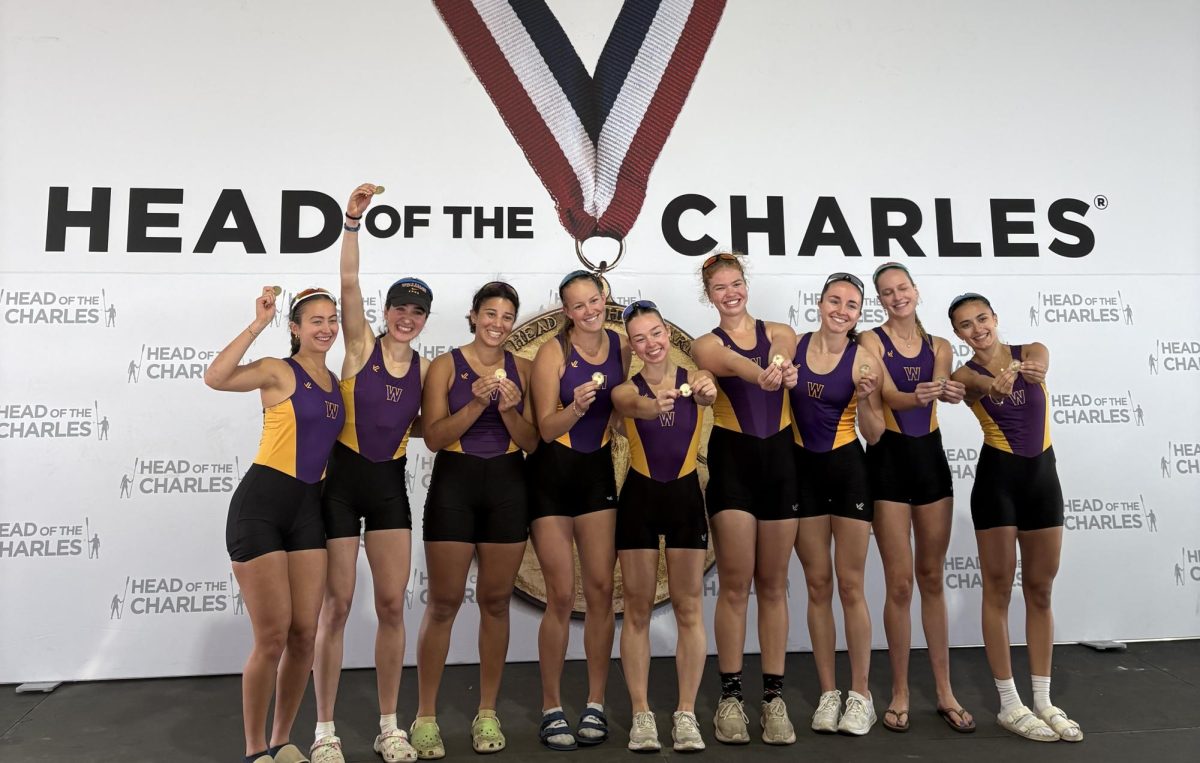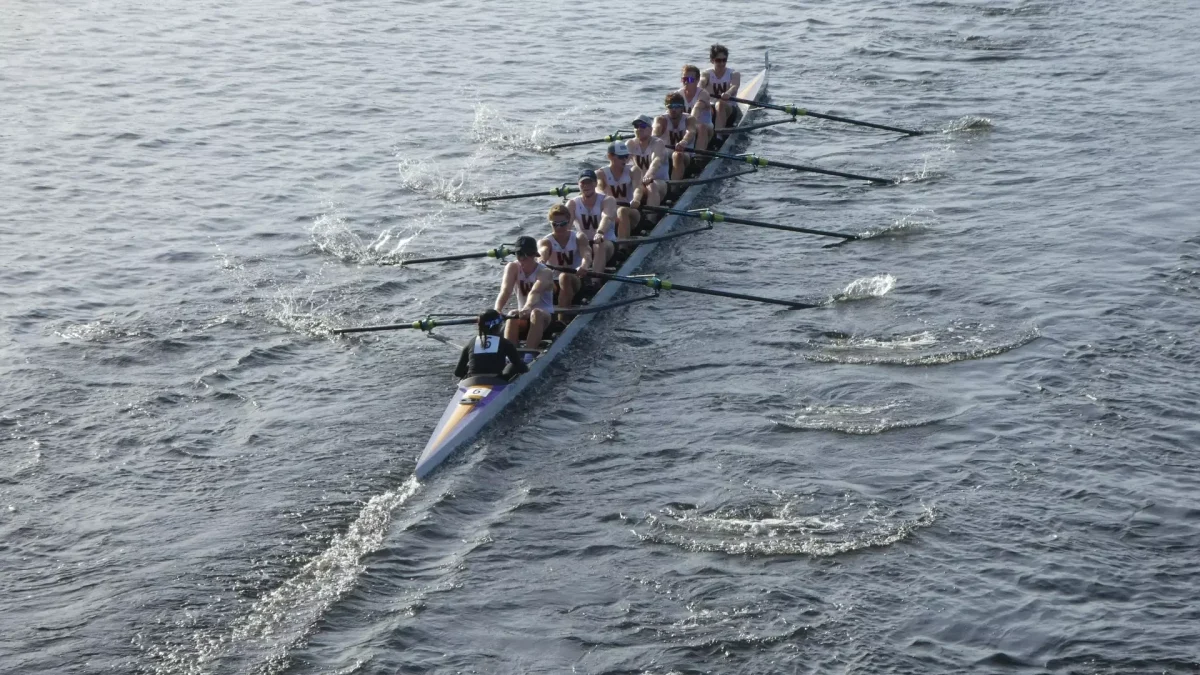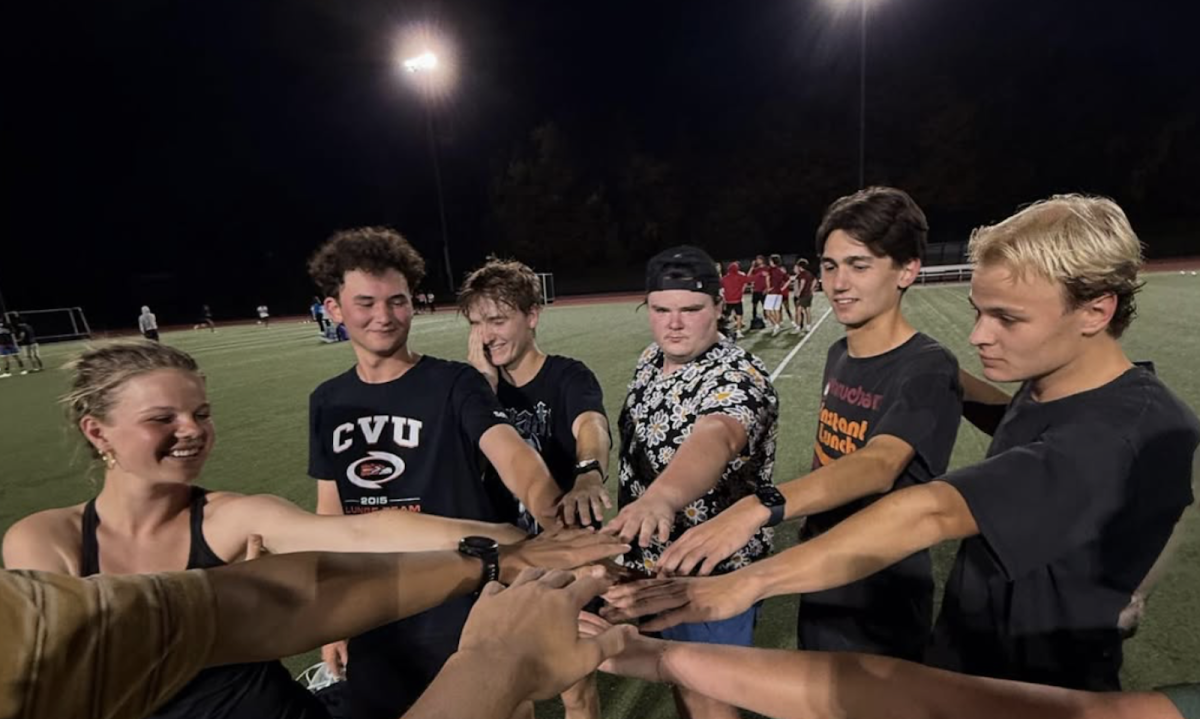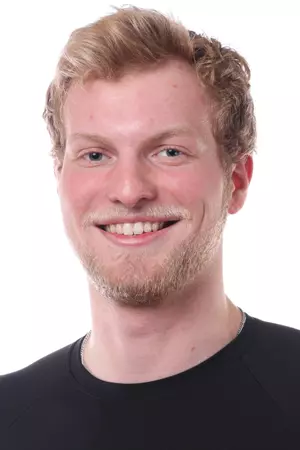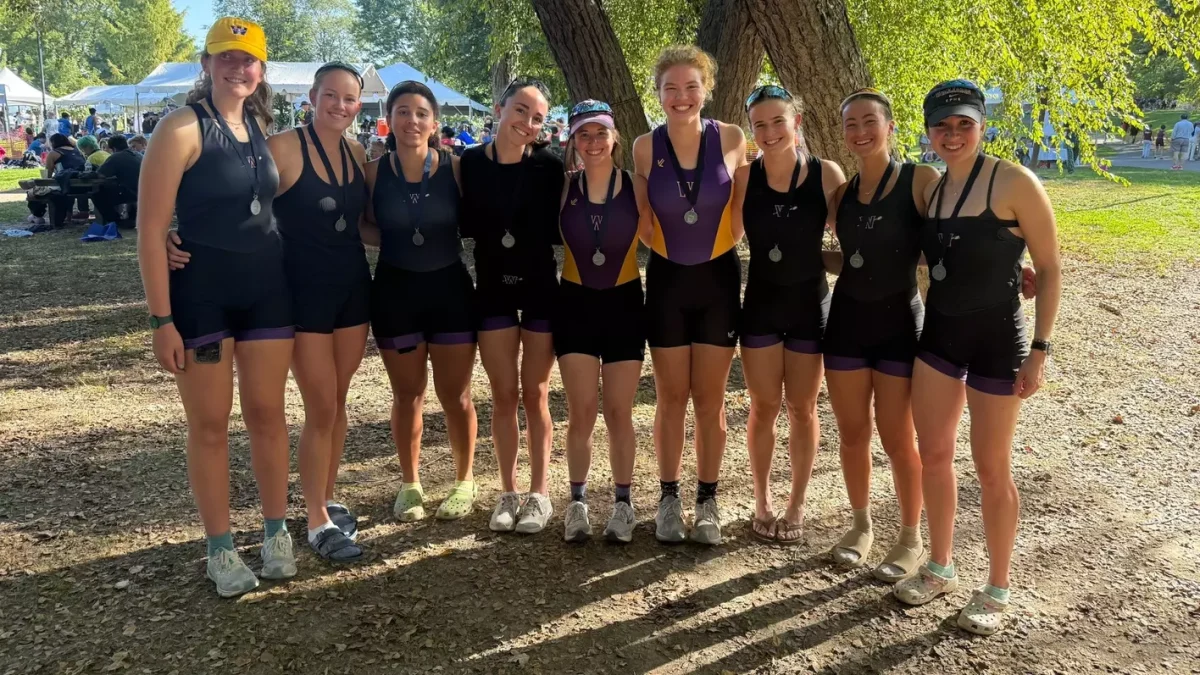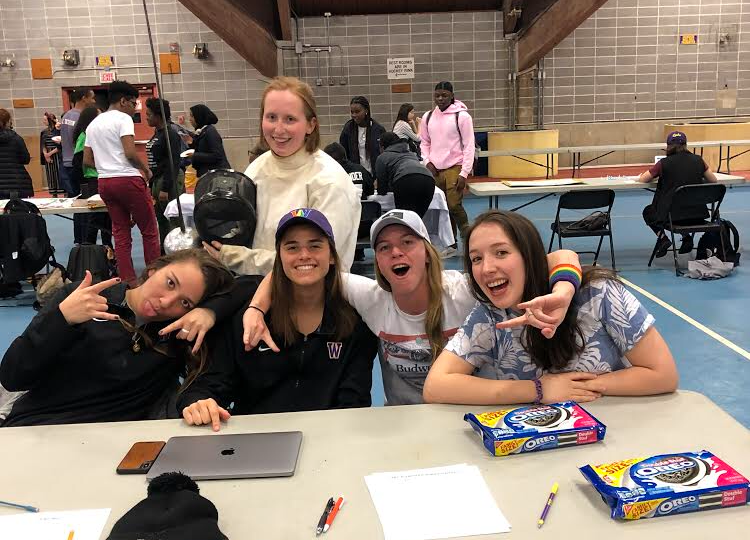
This spring marks the 10th anniversary of Anything but Straight in Athletics (ABS), a group for LGBTQIA+ student-athletes on campus. The mission of ABS, as described by the group, is to provide a confidential space for queer athletic students to discuss their experiences, through weekly meetings and organized events.
All those identified below gave the Record explicit permission to do so. ABS’ membership is confidential, and no members who did not grant this permission are mentioned by name.
ABS was founded in 2009 by former Assistant Director of the Davis Center and Queer Life Coordinator Justin Adkins and Jack Wadden ’11, a member of the men’s crew team. According to a 2009 Record article, the two started the group after finding that “LGBTQ athletes felt as though they did not have a place to discuss their sexuality” (“Outside of the locker room, students discuss queer identity,” Nov. 4, 2009).
Adkins and Wadden cited the low percentage of openly gay varsity athletes as one reason why the group was necessary. “I have discovered that many [athletes] do not feel safe or comfortable coming out to their teams or coaches,” Adkins said at the time.
Adkins continued to facilitate ABS through the Davis Center for several years, but the group’s attendance dwindled. Andrew Bloniarz ’18 first joined when attendance was at its lowest. Although the cross country runner had heard of ABS when he arrived on campus, it “was kind of in the back of my mind and never really moved out of that back spot.” Bloniarz first sought out the group during his sophomore year, after coming out as queer to many in his life.
When Bloniarz arrived at the Davis Center to attend his first meeting in October of 2015, he found the room empty. “I pushed open the door, and no one was there at all,” he said. Adkins later showed up at the meeting and recruited another student to join them. After the three discussed what it was like to be a queer athlete at the College, Bloniarz decided that he would show up to every subsequent meeting in order to ensure that no other students arrived to find an empty room. “I was ready to make a firm commitment at that point,” he said.
From then on, Bloniarz worked with Adkins and the other student in attendance to recruit more athletes to join, starting a group chat to coordinate attendance so that someone was always there to welcome new members. Soon, others started dropping in. “I felt really proud to know that people were comfortable enough coming to the group and seeking out that resource,” Bloniarz said. Although the Queer Student Union already existed on campus, Bloniarz thought, “creating new avenues for different expressions of queerness was really important.”
After Adkins, who Bloniarz said played an “integral role,” left the Davis Center in 2016, the group disbanded. “We had [all] just stepped back from it collectively,” Bloniarz said. This hiatus lasted until December of 2017, when current ABS co-president Ariel Koltun-Fromm ’20 approached Bloniarz about restarting the group. “We met and started thinking about bringing ABS back for real,” Koltun-Fromm said.
Koltun-Fromm, a co-captain of the cycling team, did not consider himself an athlete when he first came to the College. By his sophomore year, however, he found himself more involved on the team and with athletics in general. “It was only then when I started thinking about how my newfound athleticism and my sexuality intersected,” he said.
Bloniarz and Koltun-Fromm reached out to Associate Director for Student-Athlete Services Carolyn Miles, who had previously attended an ABS event, to talk about reviving the group as part of the Athletics Department. “We got a new and powerful supporter in the form of Carolyn,” Koltun-Fromm said.
The group started holding weekly meetings at Lasell, in the lounge outside of the Athletic Director’s office. Every Wednesday, Miles brings Oreos, and students gather to debrief from their weeks, discuss sports and share their experiences as queer athletes at the College. “It’s a place for students to come together and feel that they can be authentically themselves,” Miles said.
Social Coordinator Ang Vecchiarelli ’20, who plays on the women’s basketball team, was brought to her first ABS meeting by a teammate to whom she had recently come out. “I went with her to one [meeting] and I haven’t missed many ABS meetings since,” she said. “It made me want to stay there and be welcoming to the new people who came after me.”
For Vecchiarelli, ABS has offered a place where her identity as a queer person and her experience as an athlete can intersect. “I know, personally, that an identity as an athlete and an identity as a queer person can be a really difficult thing to juggle, especially if you’re the only queer person on a team of 30 people,” she said. “I think it is really important to have a resource like ABS to be able to mix those two identities together.”
Like Vecchiarelli, co-president Eliza Quigley ’19 has found ABS to be a valuable resource in understanding the relationship between these different experiences. “In terms of identity, you have being gay and being an athlete,” she said. “It’s like: I’m not just gay, and I’m not just an athlete. Those things are one [and] the same. Being able to bring those together is really important.”
In its most recent incarnation, ABS serves a place for student-athletes of all kinds to gather. “We try to make it really clear that you don’t have to be a varsity athlete,” Vecchiarelli said. “If you consider yourself athletic, then ABS is open to you. It’s for anyone that feels like they relate to both the athlete identity and some sort of queer or questioning identity.”
This effort to be inclusive extends to those with different gender identities. “We are an LGBTQI+ group,” Vecchiarelli said. “Along with the gay and bisexual community, I think the transgender community can also find a space in ABS. Queer and questioning does not only apply to gay people, it applies to anyone who is questioning any part of their identity.”
Looking toward the future, ABS leadership expressed hopes to continue to grow the group and its impact on campus. “We want to have a presence,” Quigley said. “Making it known that we are here is a big part of what we are trying to do.”
Earlier this year, ABS created an Instagram account to help spread the word and tabled at the Purple Key Fair. “[We are] making sure that people know we are here and making sure that people can come to us and talk to us,” Vecchiarelli said.
The group said it hopes that, through these outreach efforts, more students will feel comfortable coming to ABS meetings and joining in the conversation, whether it is because they themselves are grappling with issues of sexual and gender identity or because they want to support others. “It’s a very useful space to come together and feel like you really, really, really belong,” Vecchiarelli said. “I think it’s really important to have a space where you feel that.”



